Unlocking the Secrets of Gut Health: Your Gateway to Vibrant Living
Introduction
Our
digestive system plays a fundamental role in our overall well-being. The health
of our gut, in particular, has garnered increasing attention for its impact on
various aspects of our health. Research has shown that a healthy gut is
essential for optimal digestion, nutrient absorption, immune function, and even
mental well-being. In this blog post, we will explore the fascinating world of
gut health and delve into the vital role that nutrition plays in maintaining a
healthy digestive system.
What Is
Gut Health?
The term
"gut health" refers to the optimal functioning and balance of the
gastrointestinal tract. It involves the efficient breakdown and absorption of
nutrients from the food we consume, as well as the elimination of waste
products. A healthy gut supports overall health by maintaining proper nutrient
absorption and preventing the entry of harmful substances into our bloodstream.
"The
gut is the largest sensory organ in the body, and its health is crucial for
overall well-being, including mental health." -
When discussing gut health we look at the following aspects:
Gut
Microbiome Composition: The composition and diversity of the gut microbiome are
key indicators of gut health. A healthy gut microbiome is characterized by a
balanced presence of diverse microorganisms, including beneficial bacteria,
fungi, viruses, and other microorganisms.
Intestinal
Barrier Function: The gut maintains a physical and functional barrier known as
the intestinal barrier, which allows the absorption of nutrients while
preventing the entry of harmful substances, such as toxins and pathogens, into
the bloodstream. A healthy gut maintains an intact and selective barrier
function.
Digestive
Function: The efficient breakdown and digestion of food, as well as the
absorption of nutrients, are essential components of gut health. Proper
digestive function ensures that nutrients are effectively utilized by the body.
Immune
System Regulation: The gut plays a significant role in immune system
regulation. A healthy gut helps promote immune tolerance to harmless substances
while mounting appropriate immune responses against harmful pathogens. It
involves a complex interaction between gut microbes, immune cells, and the gut
barrier.
Absence of Gastrointestinal Symptoms: Gut health is often associated with the absence of chronic gastrointestinal symptoms, such as bloating, gas, abdominal pain, diarrhea, or constipation. While occasional digestive disturbances can be normal, persistent or severe symptoms may indicate an underlying issue with gut health.
The Gut Microbiome
At the core of gut health lies the intricate and diverse ecosystem known as the gut microbiome. The gut microbiome is a collection of trillions of bacteria, fungi, viruses, and other microorganisms residing in our gastrointestinal tract. This dynamic community of microbes plays a vital role in various aspects of our health, including digestion, nutrient metabolism, immune function, vitamin production, and the modulation of inflammation.
"The
trillions of microbes living in our gut have a profound influence on our
health. Nurturing a diverse gut microbiome is key to well-being." -
Digestion and Nutrient Metabolism
The gut
microbiome contributes significantly to the breakdown and digestion of complex
carbohydrates, proteins, and certain dietary fibers that our own digestive
enzymes cannot fully process. For instance, Bacteroidetes and Firmicutes are
two major phyla of bacteria that are actively involved in carbohydrate
metabolism. These bacteria produce enzymes that break down complex
carbohydrates into simpler molecules that can be absorbed and utilized by our
body. Additionally, some microbes, such as Lactobacillus and Bifidobacterium
species, play a crucial role in protein metabolism. They help break down
proteins into amino acids, which are then absorbed and used for various
physiological processes in the body.
Immune
Function
The gut
microbiome plays a pivotal role in the development and modulation of our immune
system. Beneficial microbes in the gut help educate and regulate the immune
system, ensuring it responds appropriately to harmful pathogens while
maintaining tolerance to harmless substances. They also assist in training
immune cells, enhancing their ability to distinguish between harmful and
harmless entities.
For example, certain strains of bacteria, including species of the genera Bifidobacterium and Lactobacillus, have been shown to stimulate the production of regulatory immune cells, such as regulatory T cells (Tregs). These Tregs help suppress excessive immune responses and promote immune tolerance.
Vitamin
Production
The gut
microbiome is involved in the synthesis and production of essential vitamins
that are crucial for our overall health. For instance, certain bacteria in the
gut, such as Bifidobacterium and Lactobacillus species, are capable of producing
vitamins B12, B7 (biotin), and K2. These vitamins play vital roles in energy
metabolism, cell function, and blood clotting.
Modulation
of Inflammation
The gut
microbiome has a profound influence on the modulation of inflammation in our
body. Beneficial microbes help maintain a healthy balance between
pro-inflammatory and anti-inflammatory responses. When this balance is
disrupted, chronic inflammation can occur, which is associated with the
development of various diseases. These
microbes produce short-chain fatty acids (SCFAs) as byproducts of dietary fiber
fermentation. SCFAs, particularly butyrate, have anti-inflammatory properties
and help regulate immune responses in the gut.
Mental Health
Emerging research suggests that the health of our gut microbiome plays a crucial role in our mental well-being. The intricate connection between the gut and the brain, often referred to as the "gut-brain axis," highlights how our gut health can influence our mental health.
"The
gut is often called our 'second brain' due to its profound influence on our emotions
and mental state." -
The gut microbiome produces neurotransmitters,
such as serotonin and dopamine, which are known to regulate mood and emotions.
Furthermore, the gut microbiome communicates with the brain through various
pathways, including the vagus nerve and immune system signaling. Imbalances in
the gut microbiome, such as a decrease in beneficial bacteria or an increase in
harmful bacteria, have been associated with mental health conditions like
anxiety and depression. By nurturing a healthy gut microbiome through a
balanced diet, prebiotic and probiotic-rich foods, and lifestyle practices that
support gut health, we can potentially support our mental well-being as well.
Many studies have shown that the composition and diversity of the gut microbiome can impact our overall health. Imbalances in the gut microbiota, known as dysbiosis, have been linked to various conditions such as irritable bowel syndrome (IBS), inflammatory bowel disease (IBD), obesity, and even mental health disorders.
Factors
Influencing Gut Health
Diet and
Nutrition
Research has consistently demonstrated that dietary choices significantly influence the gut microbiome. A diet rich in fiber from fruits, vegetables, whole grains, and legumes promotes the growth of beneficial bacteria and helps maintain a diverse and balanced gut microbiota.
Lifestyle
Factors
Stress, lack of sleep, and sedentary behavior can disrupt the delicate balance of the gut microbiome. Chronic stress has been associated with alterations in gut microbiota composition and increased intestinal permeability.
A study published in the journal Brain, Behavior, and Immunity found that chronic stress can disrupt the gut microbiota and impair intestinal barrier function. Poor sleep quality and insufficient sleep duration have also been linked to changes in gut microbial diversity.
Medications and Antibiotics
Certain
medications, such as nonsteroidal anti-inflammatory drugs (NSAIDs) and proton
pump inhibitors (PPIs), can negatively affect the gut microbiome. Antibiotics,
while often necessary to combat infections, can disrupt the balance of gut
bacteria, leading to temporary or long-term changes in microbial diversity. The
journal Nature Communications found that antibiotic use altered the gut
microbiota composition, with some changes persisting even after six months.
Signs of
an Unhealthy Gut
An unhealthy gut can manifest in various ways. Common signs include persistent digestive issues like bloating, gas, diarrhea, or constipation. Other symptoms may include food intolerances, frequent infections, skin problems, fatigue, and even mood disturbances.
A systematic review published in the journal Frontiers in Immunology found that alterations in the gut microbiome were associated with the development of gastrointestinal disorders and immune-mediated diseases.
Strategies for Promoting a Healthy Gut
Incorporating
a Balanced Diet
Consuming a diverse range of nutrient-dense foods is essential for nurturing a healthy gut. Focus on incorporating ample fruits, vegetables, whole grains, legumes, and fermented foods into your diet.
"One
of the most powerful ways to improve gut health is by incorporating more whole,
plant-based foods into your diet. Aim for a variety of colorful fruits and
vegetables every day." -
These foods provide fiber, prebiotics, and probiotics that support the growth of beneficial gut bacteria. Remember to choose fresh, whole foods whenever possible and aim for a colorful plate to ensure a diverse range of nutrients.
Lifestyle
Modifications
Managing stress levels through practices like meditation, deep breathing exercises, or engaging in hobbies can positively impact gut health.
"Lifestyle
factors like managing stress, getting enough sleep, and engaging in regular
physical activity can positively impact gut health." -
Prioritizing quality sleep and engaging in regular physical activity have also been linked to a healthier gut microbiome.
A study published in the journal Psychosomatic Medicine showed that mindfulness-based stress reduction improved the gut microbiome composition and reduced gastrointestinal symptoms.
Probiotics
and Supplements
Probiotics are live bacteria that can provide health benefits when consumed. They can be found in fermented foods like yogurt, sauerkraut, and kimchi. Probiotic supplements may also be beneficial, especially during or after a course of antibiotics.
However, it's essential to choose high-quality probiotic supplements with strains proven to have positive effects. A review published in the journal Nutrients suggested that specific probiotic strains, such as Lactobacillus and Bifidobacterium, have shown promising effects in improving gut health and alleviating gastrointestinal symptoms.
Conclusion
Maintaining
a healthy gut is crucial for overall well-being, as it influences various aspects
of our health, from digestion and nutrient absorption to immune function and
mental well-being. By prioritizing a balanced diet rich in fiber and
incorporating lifestyle habits that support gut health, we can nurture a
diverse and beneficial gut microbiome. Remember, small changes in diet and
lifestyle can make a significant impact on your gut health and overall
vitality.
"Your
gut is where health begins and disease starts. Focusing on gut health is a
fundamental step towards optimal well-being." -
Always consult with a healthcare professional before making any significant dietary or lifestyle changes, especially if you have underlying health conditions or are taking medications.
By understanding the importance of a healthy digestive system and making informed choices, we can optimize our gut health and pave the way for a healthier, happier life.
"When
it comes to gut health, personalized nutrition is key. Experiment with different
dietary approaches and listen to your body's response to find what works best
for you." -
Remember,
maintaining gut health is a lifelong journey, and small, consistent changes can
yield long-term benefits. Start by incorporating gut-friendly foods and habits
into your daily routine, and observe how your body responds. Your gut will
thank you!
(Note: The information provided in this blog post is for educational purposes only and should not replace professional medical advice. Consult with a healthcare professional for personalized guidance and recommendations.)


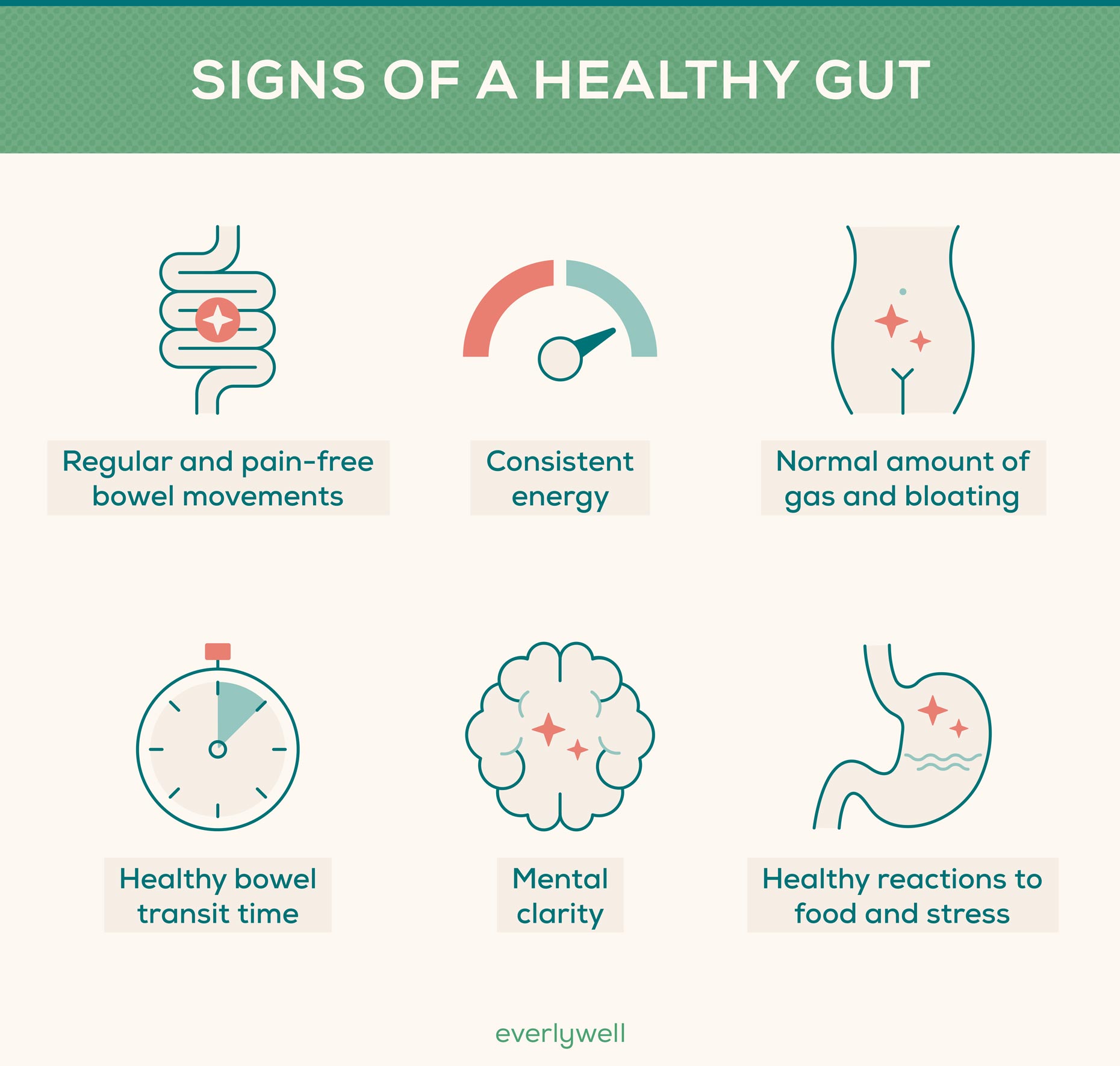
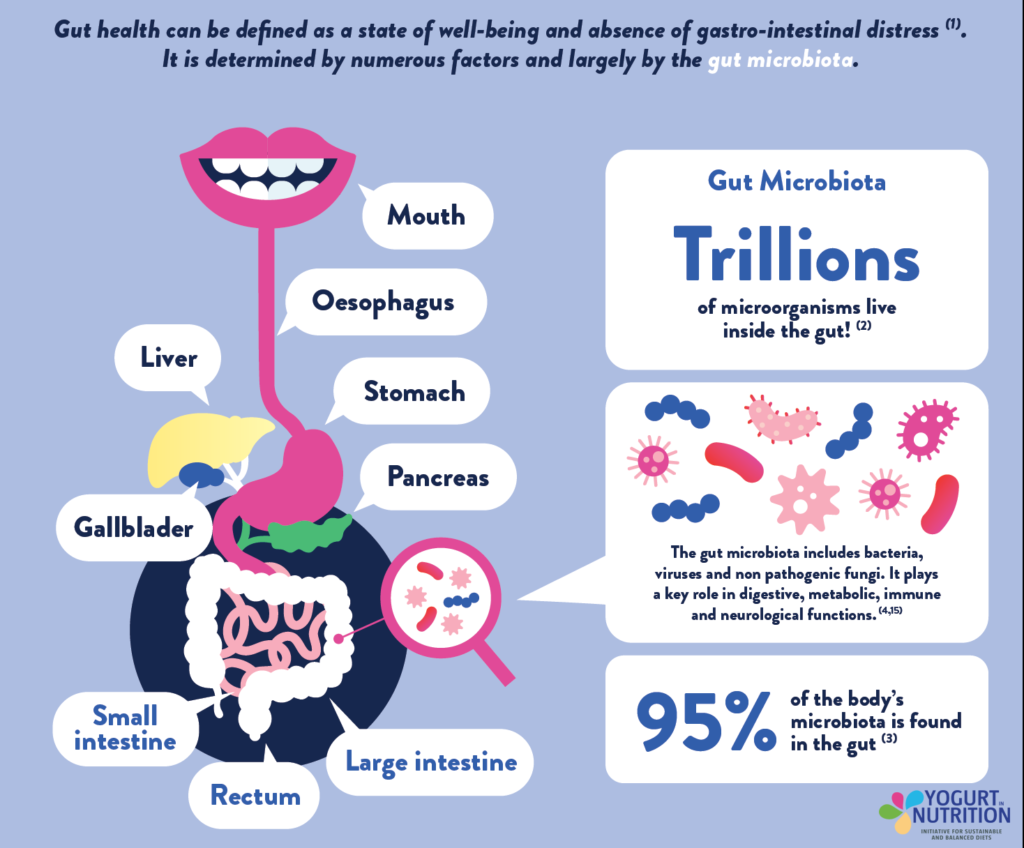



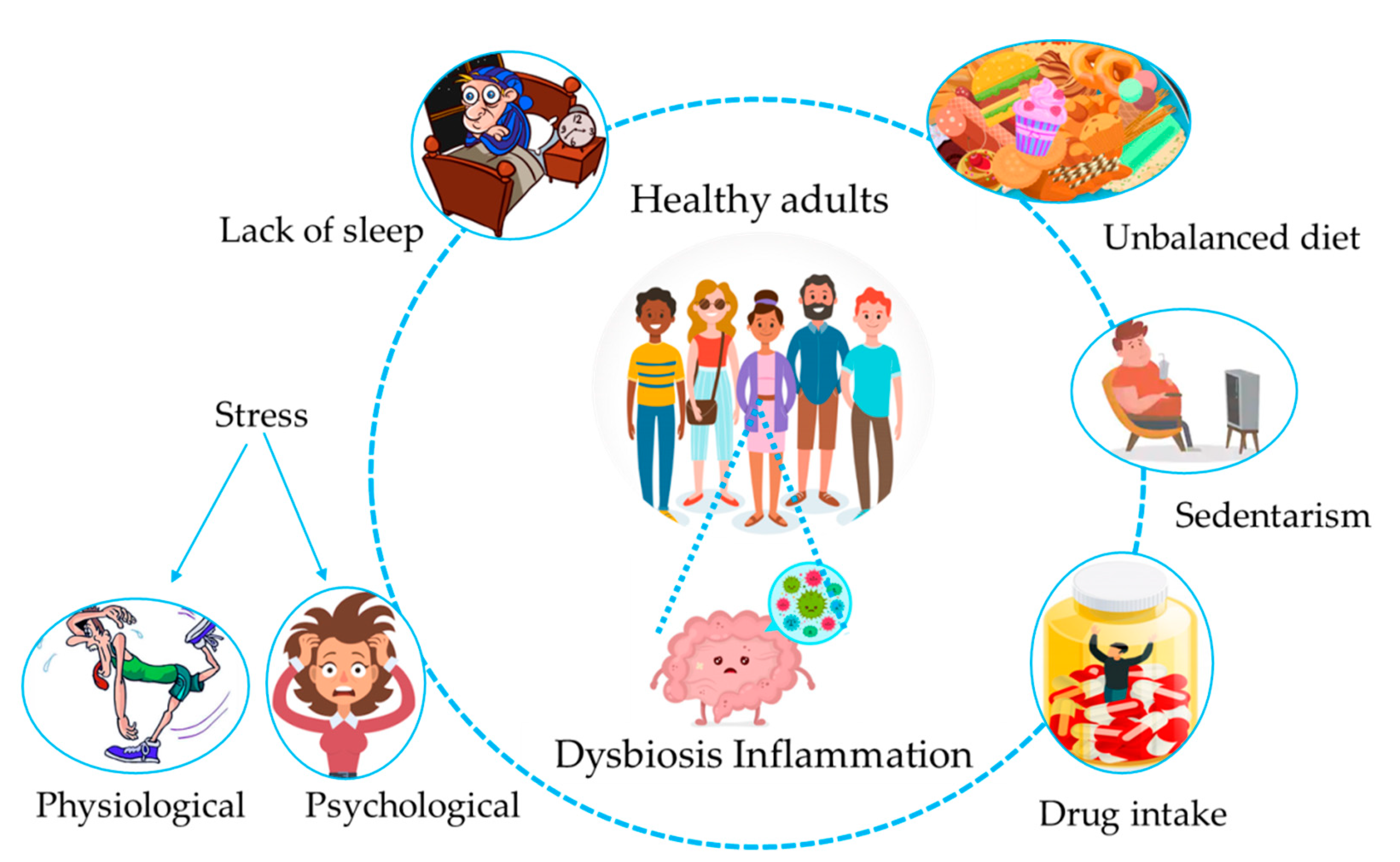





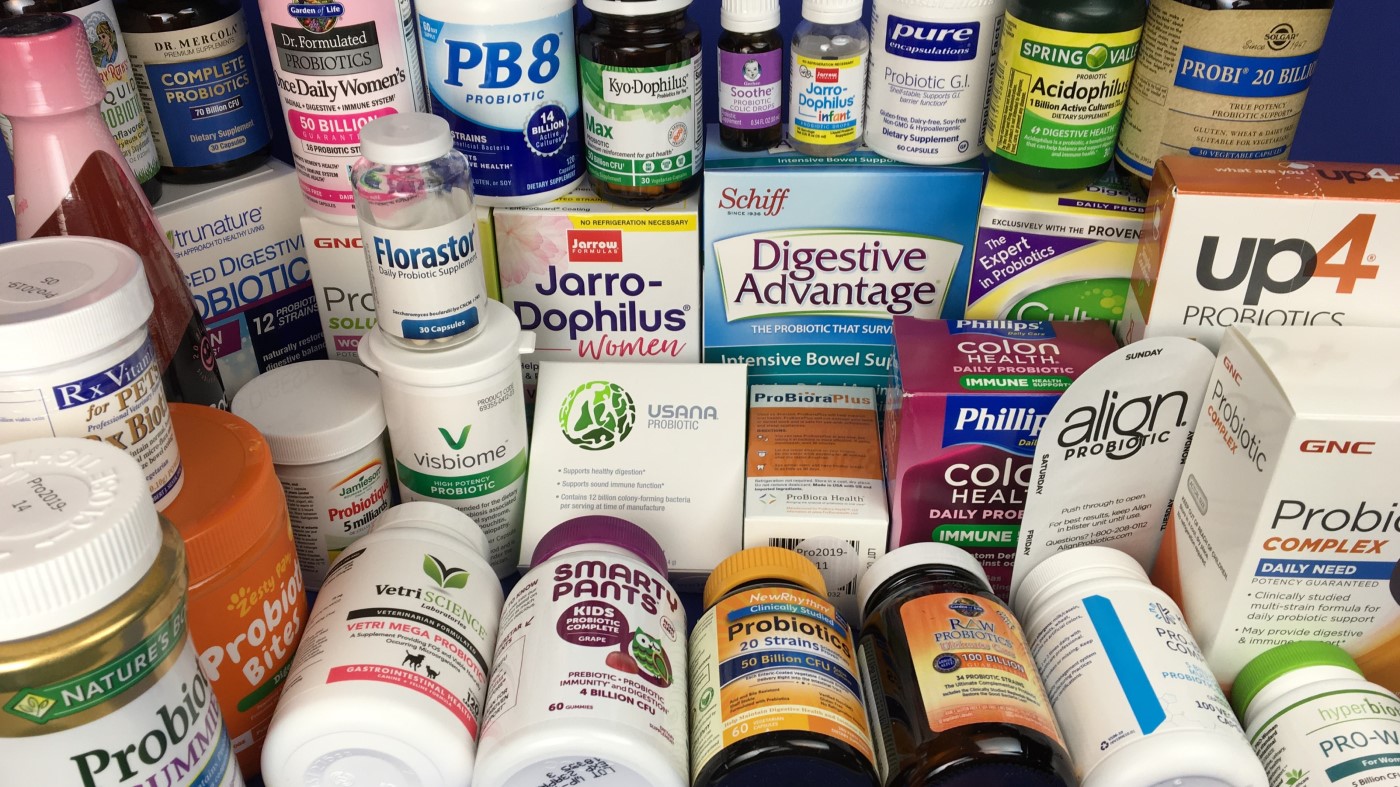
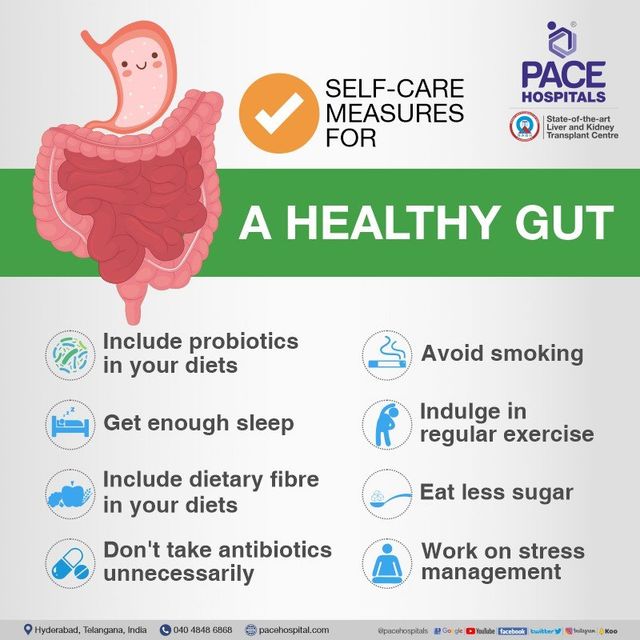

Comments
Post a Comment